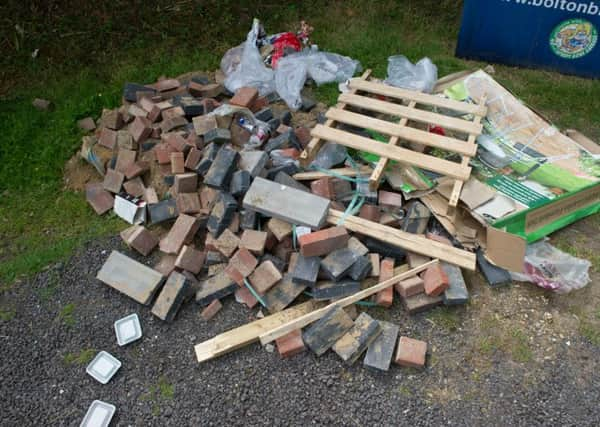Rise in fly-tipping costs councils in Lincolnshire almost £1 million, says countryside organisation CLA


A Government study of local councils in England also reported the total cost of clearing illegally dumped waste was just over £49.5 million, compared to £45.2 million in 2013–14. The total cost to Lincolnshire’s local authorities was £882,130.
Out of almost 900,000 incidents reported to local councils across the country, 515,000 resulted in action being taken (ranging from an investigation upwards) – but there were less than 2,000 prosecutions. A total of 38,148 fixed-penalty notices were issued.
Advertisement
Hide AdAdvertisement
Hide AdCLA east regional director Ben Underwood said greater action was needed in order to reverse the figures, which would have been even higher if incidents on private land had been included in the statistics.
“The figures are shocking, but not a surprise,” he said. “We deal with reports and complaints relating to fly-tipping from farmers and landowners on a regular basis. We know it is an enormous problem and one that is not going to go away without a more proactive approach from both councils and central Government.
“We support repeat or large-scale offenders having their vehicles seized and crushed, and on-the-spot fines being issued to those caught in the act of fly-tipping household items or rubbish.
“However, not all local councils are making use of such sanctions and there is a need for them to increase their efforts to deter fly-tipping and to penalise the culprits. The Government also needs to show national leadership and create a framework for action.
Advertisement
Hide AdAdvertisement
Hide Ad“Currently, farmers and landowners remain liable for any waste dumped on their land. If they don’t take remedial action they can be prosecuted. This is utterly unfair. Punishing innocent victims of this crime is not going to remedy the problem and sends out a poor message.
“On average it costs £800 to clear up each incidence of non-toxic fly-tipped waste on private land, and it costs the rural business sector up to £150 million in clean-up costs every year.
“The CLA has put forward proposals for changes to the law and will continue to lobby Government so that it provides better protection and assistance for private property owners.”